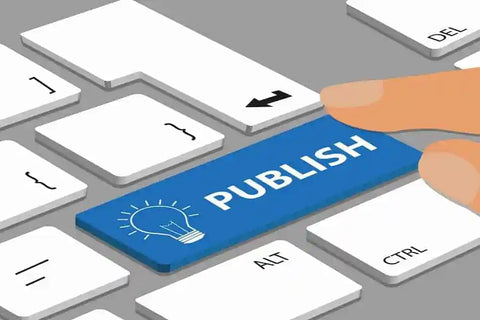The Need To Produce a Minimum Publishable Unit in Journal Publishing
Despite the increasing pressure for academics and scientists to publish articles early and frequently in order to receive promotions, grants and salary increases, the requirement to produce a minimum publishable unit remains standard among scholarly journals. It is therefore imperative when preparing an original research paper for publication to ensure that you are providing the basic ingredients to constitute what the journal will consider a publishable article.
Unfortunately, most journals do not specify exactly what a minimum publishable unit is. Many will describe the kinds of papers they publish, however, and such information will certainly cover the same sort of ground. For a research paper, for instance, original research is necessary, and that research should be described in some detail, particularly its methods and procedures. Introductory or background material is standard as well, even if it is very brief.
Significant results also tend to be a requirement for publication, so the findings of your research should be reported and some analysis demonstrating their value should be offered. For a short paper you may wish to be selective in what you discuss in order to meet length requirements and keep an argument straightforward, but it is a good idea to provide more complete data in tables, appendices or archives to substantiate your research for those specialists who will want to see the larger picture.
An argument that not only relates the story of your research but also analyses the findings and draws conclusions, outlines implications and offers recommendations would also be standard fare in a publishable paper. Do keep in mind that there is considerable variation among disciplines regarding the process and goal of argumentation. However, whether a research paper is long or short, the basic constituents of original research, significant results and a sound and logical argument remain fairly constant across scholarly disciplines and journals.
Requirements are different if the paper you are submitting to a journal for consideration is not a traditional research article. Some journals publish study protocols, for instance, in which the intention of the authors is to describe research projects and how they will be conducted, rather than to report the results of research that is now complete. Similarly, a literature review that aims to outline what has been published on a topic or problem to date would be considered publishable for qualities very different from those characterising a research paper. Most journals that publish study protocols and literature reviews will provide specific guidance for papers of those types, so do check for requirements relevant to the paper you are submitting.
Given the pressure to publish and earn citations in order to advance academic and scientific careers, the temptation to cut research projects, studies and articles up into smaller units for publication purposes can be enormous, but this is rarely a truly successful strategy. Remember that a complete research project chopped up into shorter chunks simply to achieve more publications does not necessarily result in a number of high-quality research papers, and repeating material in different papers across different journals to shore up deficiencies is not the answer either.
Why Our Editing and Proofreading Services?
At Proof-Reading-Service.com we offer the highest quality journal article editing, dissertation proofreading and online proofreading services via our large and extremely dedicated team of academic and scientific professionals. All of our proofreaders are native speakers of English who have earned their own postgraduate degrees, and their areas of specialisation cover such a wide range of disciplines that we are able to help our international clientele with research editing to improve and perfect all kinds of academic manuscripts for successful publication. Many of the carefully trained members of our manuscript editing and proofreading team work predominantly on articles intended for publication in scholarly journals, applying painstaking journal editing standards to ensure that the references and formatting used in each paper are in conformity with the journal’s instructions for authors and to correct any grammar, spelling, punctuation or simple typing errors. In this way, we enable our clients to report their research in the clear and accurate ways required to impress acquisitions proofreaders and achieve publication.
Our scientific proofreading services for the authors of a wide variety of scientific journal papers are especially popular, but we also offer manuscript proofreading services and have the experience and expertise to proofread and edit manuscripts in all scholarly disciplines, as well as beyond them. We have team members who specialise in medical proofreading services, and some of our experts dedicate their time exclusively to dissertation proofreading and manuscript proofreading, offering academics the opportunity to improve their use of formatting and language through the most exacting PhD thesis editing and journal article proofreading practices. Whether you are preparing a conference paper for presentation, polishing a progress report to share with colleagues, or facing the daunting task of editing and perfecting any kind of scholarly document for publication, a qualified member of our professional team can provide invaluable assistance and give you greater confidence in your written work.
If you are in the process of preparing an article for an academic or scientific journal, or planning one for the near future, you may well be interested in a new book, Guide to Journal Publication, which is available on our Tips and Advice on Publishing Research in Journals website.








